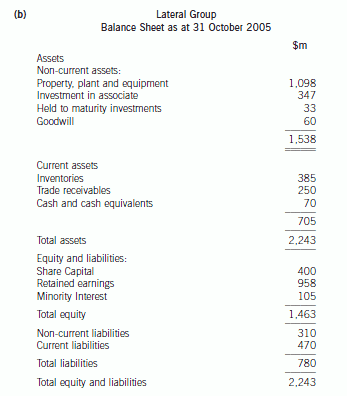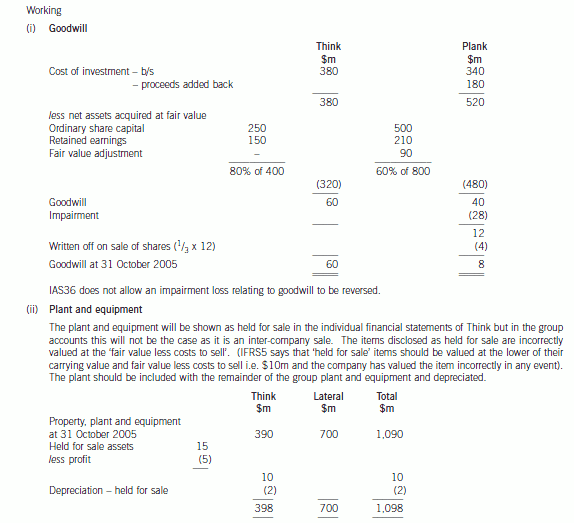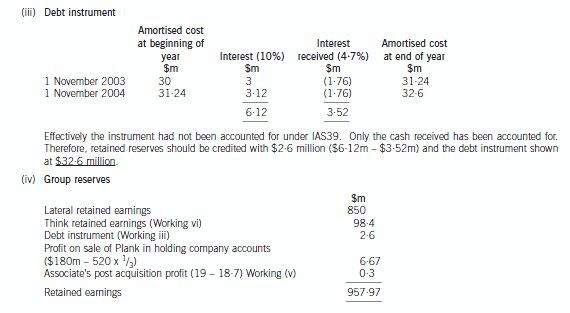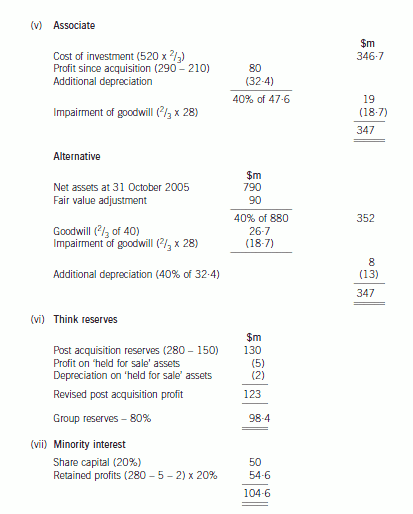了解一下!2021年ACCA考试形式是什么?
发布时间:2021-09-12
2021年ACCA考试9月考季已经来临了,最近很多考生都在关心今年的ACCA采用什么样的形式来考试。51题库考试学习网今天为大家带来2021年ACCA考试形式的详细内容,感兴趣的小伙伴快来了解一下吧!
一、2021年ACCA考试形式
ACCA考试方式是采用闭卷考试+机考的方法来解题,ACCA考试每科目地达标标准分数为50分,满分成一百分。在考试以前,考生随时随地都能够开展机考的预约,考生预约取得成功后,能够登陆ACCA英文官网查询机考中心所发布的机考预约名册,倘若考生见到名册中有你的名字.,就可以在特定的时间开展机考考试。
二、2021年ACCA是全部机考吗?
目前,ACCA13门考试科目中既有机考也有笔考。BT-LW是随时机考,PM-FM自2018年3月份开始实行全部机考,P阶段只有笔试,但自2021年3月考季之后,P阶段也将全部采用机考考试。
BT-LW机考全是选择题。F5-F9在2018年3月份开始实行全部机考,题型有选择题有论述题,每门考试的选择题和大题占比不同。
对此,ACCA官方有着明确的要求:
1、AC-LW课程为随时机考。学员可在任一时间进行报考和报考,随时机考的考试成绩将在当天公布。
2、PM-FM自2018年开始,全部实施了分季机考模式。学员需要在官方规定的3/6/9/12月考试季内进行考试,考试成绩大约会在考试结束后的40天公布!
3、SBL、SBR及选修课程均为笔考模式。从整体的发展趋势来看,ACCA全部改革为机考考试已经大势所趋。对于新的机考模式,大部分学员还是能够从容以对的。
以上就是51题库考试学习网为大家分享的ACCA考试形式的全部内容了,想要了解更多相关内容的小伙伴可以继续关注51题库考试学习网,我们会为您提供更多相关优质资讯!
下面小编为大家准备了 ACCA考试 的相关考题,供大家学习参考。
(b) Discuss the key issues which will need to be addressed in determining the basic components of an
internationally agreed conceptual framework. (10 marks)
Appropriateness and quality of discussion. (2 marks)
(b) There are several issues which have to be addressed if an international conceptual framework is to be successfully developed.
These are:
(i) Objectives
Agreement will be required as to whether financial statements are to be produced for shareholders or a wide range of
users and whether decision usefulness is the key criteria or stewardship. Additionally there is the question of whether
the objective is to provide information in making credit and investment decisions.
(ii) Qualitative Characteristics
The qualities to be sought in making decisions about financial reporting need to be determined. The decision usefulness
of financial reports is determined by these characteristics. There are issues concerning the trade-offs between relevance
and reliability. An example of this concerns the use of fair values and historical costs. It has been argued that historical
costs are more reliable although not as relevant as fair values. Additionally there is a conflict between neutrality and the
traditions of prudence or conservatism. These characteristics are constrained by materiality and benefits that justify
costs.
(iii) Definitions of the elements of financial statements
The principles behind the definition of the elements need agreement. There are issues concerning whether ‘control’
should be included in the definition of an asset or become part of the recognition criteria. Also the definition of ‘control’
is an issue particularly with financial instruments. For example, does the holder of a call option ‘control’ the underlying
asset? Some of the IASB’s standards contravene its own conceptual framework. IFRS3 requires the capitalisation of
goodwill as an asset despite the fact that it can be argued that goodwill does not meet the definition of an asset in the
Framework. IAS12 requires the recognition of deferred tax liabilities that do not meet the liability definition. Similarly
equity and liabilities need to be capable of being clearly distinguished. Certain financial instruments could either be
liabilities or equity. For example obligations settled in shares.
(iv) Recognition and De-recognition
The principles of recognition and de-recognition of assets and liabilities need reviewing. Most frameworks have
recognition criteria, but there are issues over the timing of recognition. For example, should an asset be recognised when
a value can be placed on it or when a cost has been incurred? If an asset or liability does not meet recognition criteria
when acquired or incurred, what subsequent event causes the asset or liability to be recognised? Most frameworks do
not discuss de-recognition. (The IASB’s Framework does not discuss the issue.) It can be argued that an item should be
de-recognised when it does not meet the recognition criteria, but financial instruments standards (IAS39) require other
factors to occur before financial assets can be de-recognised. Different attributes should be considered such as legal
ownership, control, risks or rewards.
(v) Measurement
More detailed discussion of the use of measurement concepts, such as historical cost, fair value, current cost, etc are
required and also more guidance on measurement techniques. Measurement concepts should address initial
measurement and subsequent measurement in the form. of revaluations, impairment and depreciation which in turn
gives rise to issues about classification of gains or losses in income or in equity.
(vi) Reporting entity
Issues have arisen over what sorts of entities should issue financial statements, and which entities should be included
in consolidated financial statements. A question arises as to whether the legal entity or the economic unit should be the
reporting unit. Complex business arrangements raise issues over what entities should be consolidated and the basis
upon which entities are consolidated. For example, should the basis of consolidation be ‘control’ and what does ‘control’
mean?
(vii) Presentation and disclosure
Financial reporting should provide information that enables users to assess the amounts, timing and uncertainty of the
entity’s future cash flows, its assets, liabilities and equity. It should provide management explanations and the limitations
of the information in the reports. Discussions as to the boundaries of presentation and disclosure are required.
22 Which of the following items may appear in a company’s statement of changes in equity, according to IAS 1 Presentation of financial statements?
1 Unrealised revaluation gains.
2 Dividends paid.
3 Proceeds of equity share issue.
4 Profit for the period.
A 2, 3 and 4 only
B 1, 3 and 4 only
C All four items
D 1, 2 and 4 only
(b) Prepare a consolidated balance sheet as at 31 October 2005 for the Lateral Group in accordance with
International Financial Reporting Standards. (21 marks)




(c) Illustrate how:
(i) inquiry; and (4 marks)
(c) Due diligence review
(i) Inquiries
Tutorial note: These should be focussed on uncovering facts that may not be revealed by the audited financial
statements (e.g. off balance sheet finance, contingencies, commitments and contracts) especially where knowledge
may be confined to management.
■ Do any members of MCM’s senior/executive management have contractual terms that will result in significant
payouts to them (e.g. on change of ownership of the company or their being made redundant)?
■ What contracts with clients, if any, will lapse or be made void in the event that MCM is purchased from Frontiers?
■ What synergy or inter-company trading, if any, currently exists between MCM and Frontiers? For example, Frontiers
may publish MCM’s training materials.
■ Are there any major clients who are likely to be lost if MCM is purchased by Plaza (e.g. any competitor food
retailers)?
■ What are the principal terms of the operating leases relating to the International business’s premises?
■ What penalties should be expected to be incurred if operating leases and/or contracts with training consultants are
terminated?
■ Has MCM entered into any purchase commitments since 31 December 2004 (e.g. to buy or lease further
premises)?
■ Who are the best trainers that Plaza should seek to retain after the purchase of MCM?
■ What events since the audited financial statements to 31 December 2004 were published have made a significant
impact on MCM’s assets, liabilities, operating capability and/or cash flows? (For example, storm damage to
premises, major clients defaulting on payments, significant interest/foreign-exchange rate fluctuations, etc.)
■ Are there any unresolved tax issues which have not been provided for in full?
■ What effect will the purchase have on loan covenants? For example, term loans may be rendered repayable on a
change of ownership.
声明:本文内容由互联网用户自发贡献自行上传,本网站不拥有所有权,未作人工编辑处理,也不承担相关法律责任。如果您发现有涉嫌版权的内容,欢迎发送邮件至:contact@51tk.com 进行举报,并提供相关证据,工作人员会在5个工作日内联系你,一经查实,本站将立刻删除涉嫌侵权内容。
- 2020-02-20
- 2020-03-18
- 2020-01-10
- 2020-03-12
- 2020-02-21
- 2019-07-21
- 2020-03-29
- 2020-01-09
- 2020-01-09
- 2020-03-13
- 2020-03-05
- 2020-03-05
- 2020-01-10
- 2020-03-07
- 2020-03-15
- 2020-03-06
- 2020-04-19
- 2020-01-10
- 2020-01-09
- 2020-01-10
- 2020-01-09
- 2020-04-11
- 2020-02-21
- 2020-03-11
- 2020-01-10
- 2020-03-07
- 2020-01-09
- 2020-01-10
- 2020-02-05
- 2020-03-03